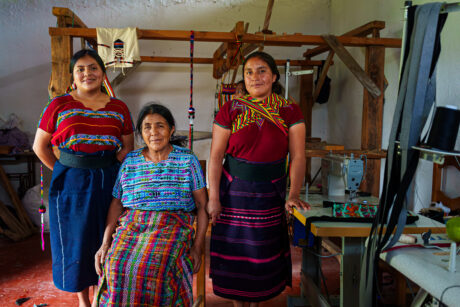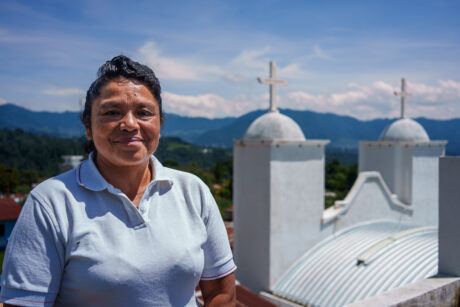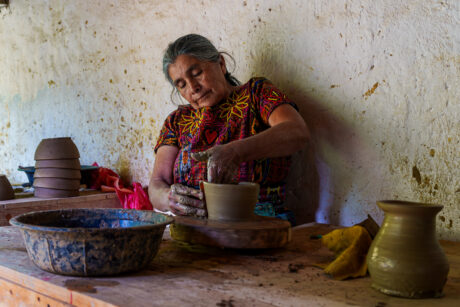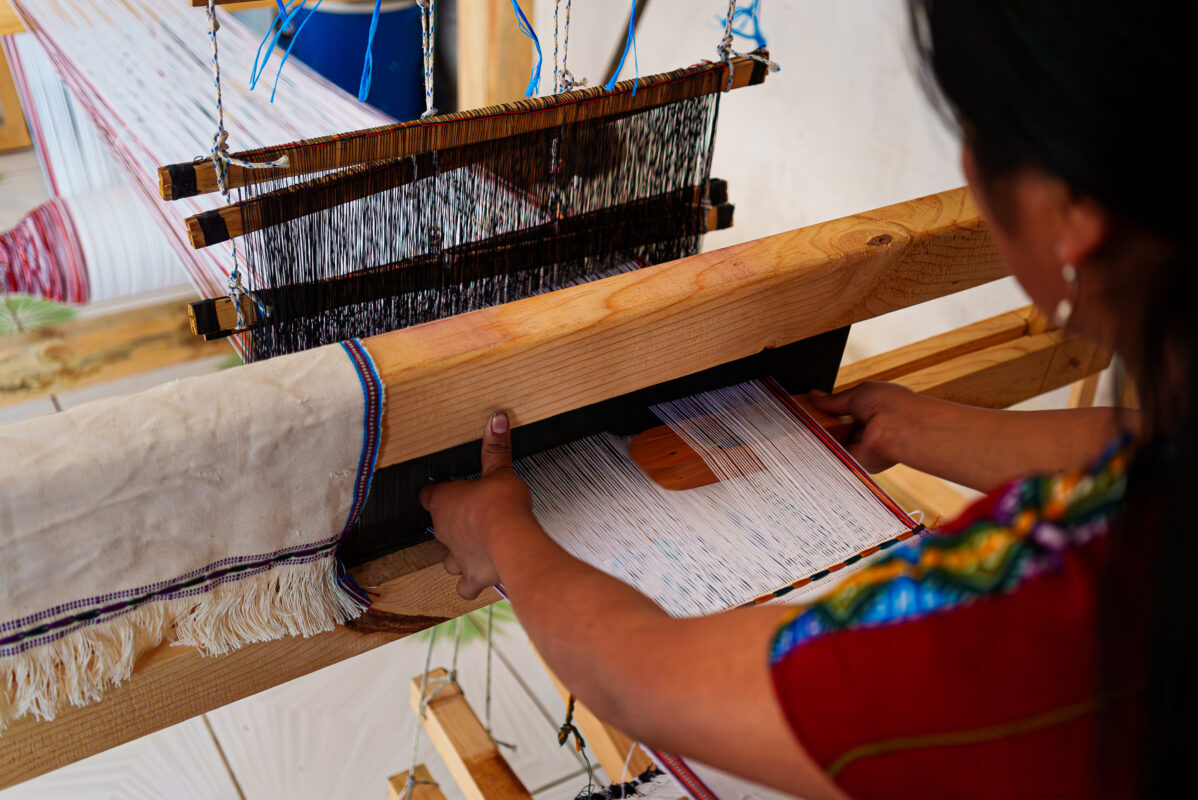Residents of Chiantla in Huehuetenango, Guatemala were fed up with a local rock-crushing company. The company’s large trucks drove up and down the community’s roads at high speeds around 50 times per day, deteriorating roads and creating an unsafe environment for children walking to school and other pedestrians. The community knew who to go to for help.
“With my work as a mediator, I don’t go looking for conflict, the conflict comes to me,” says Ernesto Jacinto Mejía, who holds several leadership positions in Chiantla. “People turn to me to find solutions,” says Mejía.
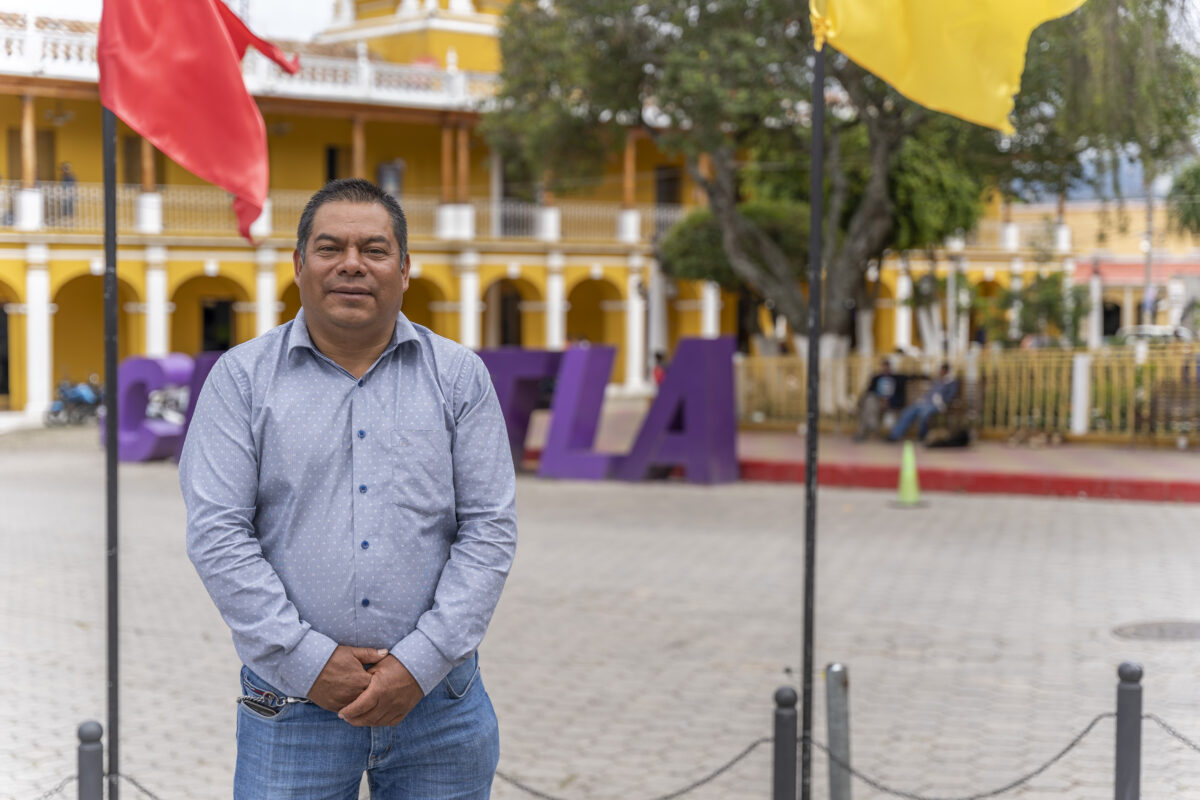
Recognized by his peers as an impartial, trusted mediator, Mejía facilitates dialogue between people who do not see eye to eye, aiming to mitigate conflict efficiently and quickly, using assertive communication and encouraging fair compromise between parties. Having lived in Chiantla his whole life, Mejía knows the cultural context well and has credibility among his community and within the spaces he has provided support.
Mejía is the president of the Conflict Mediator Network’s board of directors, a municipal councilman of Chiantla, and president of the Municipal Violence Prevention Commission. Within these different roles, Mejía’s end goal is always the same: to prevent and mitigate conflict in Chiantla and its surrounding communities.
A strategy implemented by the U.S. Agency for International Development and Creative Associates International through the Peacebuilding Project, the Conflict Mediator Network integrates local communities, municipalities, and departments in the Western Highlands of Guatemala so together, they can use dialogue to ensure that conflict does not become violent.
The network is made up of community leaders from different communities where the Peacebuilding Project works. The focus is to provide the members of the network with the resources and tools to resolve conflict with effective and peaceful mediation techniques. Training in do-no-harm approaches, gender, interculturality, human rights, and effective communication techniques have helped Mejia and the network to successfully mediate conflict.
“When the Conflict Mediator training ended, we began to mediate different kinds of conflict — border limits, personal conflict between parties, and conflict between communities and businesses,” says Mejía.
Conflicts such as the one between the rock-crushing company and residents of Chiantla.
When the community came to Mejía for help with the rock-crushing company, they wanted the company to repair seven kilometers of road but the company owner said he could not do that alone.
Mejía offered to mediate the conflict and, after seven meetings, he helped both parties come to an agreement: the community would contribute to the road repairs and the company put up and enforced speed limits signs. They also agreed to water down sections of the dirt road that passed in front of people’s homes during the dry season to reduce the dust.
“Thanks to the training we received, we have been able to advance and solve some problems,” says Mejía, referring to the recently mediated conflict in Chiantla. “This is a great achievement for the network, for the Peacebuilding Project, and for all the residents because it is more peaceful now that the conflict has been mediated.”
Social conflict is an inherent part of human nature and can be necessary to make positive change in people’s lives. Nevertheless, if it is not managed effectively and constructively, conflict can lead to violence and crisis, affecting governability at a local and national level. Experienced local mediators are key to keeping the peace.
“The more training we have, the more experience we gain, the better off entire communities will be,” says Mejía.
